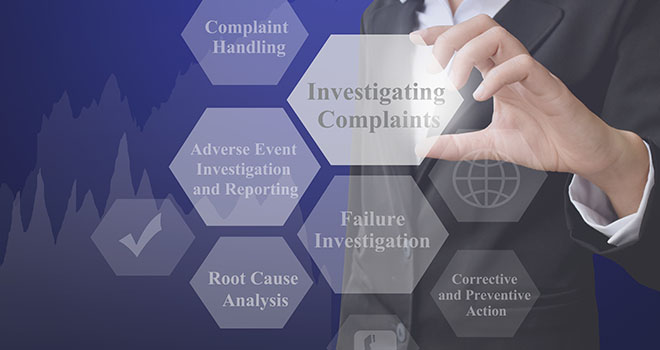The General Code of Conduct was significantly amended in June 2020. This is particularly true of Section 17 which requires the establishment of a complaints management framework.
Most of the new requirements had to be implemented by 27 December 2020. These changes included
- the actual establishment of the framework
- the allocation of responsibilities for effective complaints management
- the establishment of an internal complaints escalation and review process, and
- requirements relating to record keeping, monitoring and analysis of complaints.
The remaining provisions of Sections 17 will become effective on 26 June 2021. These are S 17(2), S 17(4) and S 17(7)(b)(iii), (c) and (d).
S 17(2) details the minimum requirements for the complaints management framework. These include, inter alia:
- appropriate performance standards and remuneration and reward strategies for complaints management
- documented procedures for the categorisation of complaints
- complaint record keeping, monitoring and analysis
- processes for managing complaints relating to the provider’s representatives and service suppliers.
In terms of S 17(4) providers must categorise reportable complaints (i.e. complaints that have not been upheld) into a number of specified categories. These categories include, inter alia:
- complaints relating to the design of a financial product, financial service or related service, including the fees, premiums or other charges related to that financial product or financial service
- complaints relating to information provided to clients
- complaints relating to advice.
S 17(7) sets out the requirements relating to the record keeping, monitoring and analysis of complaints. Most of S 17(7) became effective in December 2020. Certain of the more complex requirements will be come effective on 26 June this year.
S 17(7)(b)(iii) provides that each complaint must be categorised as provided for in S 17(4) referred to above.
In terms of S 17(7)(c), a provider will now be required to maintain certain data relating to reportable complaints. Such data must include, inter alia:
- number of complaints received
- number of complaints upheld
- number of rejected complaints and reasons for the rejection
- number of complaints referred to an ombud and their outcome.
In terms of S 17(7)(d), all recorded complaints information must be scrutinised and analysed by a provider on an ongoing basis so as to manage conduct risks and to ensure improved outcomes and processes for its clients.
This article is intended as a heads-up only and does not contain the details of all the required changes that have been imposed by the amended S 17.
In this regard the writer falls back on the old adage: When in doubt, consult the handbook. A copy of the amended General Code of Conduct (Board Notice 80 of 2003) is available with all amendments highlighted.
It’s worth a read.



